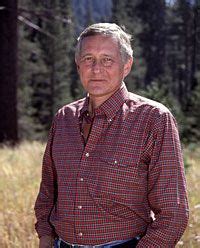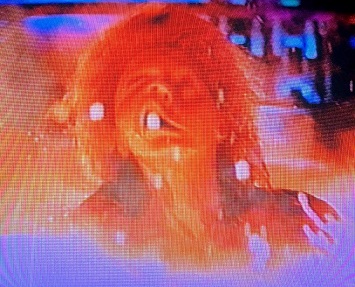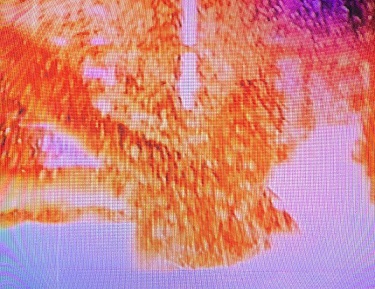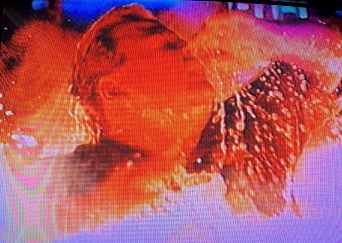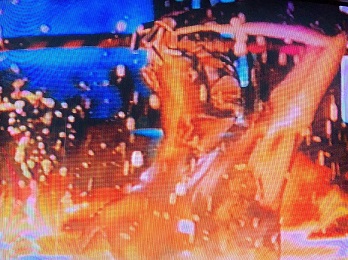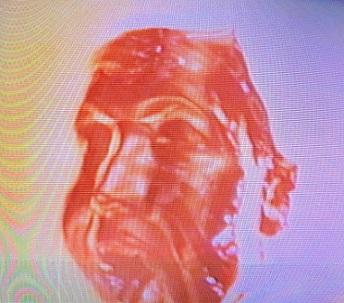|
Word Gems
self-knowledge, authentic living, full humanity, continual awakening
Editor's 1-Minute Essay:
Surrender & Acceptance
return to "Surrender" main-page
Elizabeth Barrett Browning:
Earth's crammed with Heaven
And every common bush afire with God
But only he who sees takes off his shoes
A Course In Miracles: "All things are lessons God would have me learn."

|
“The kingdom of heaven,” Jesus said, “is like lilies in a field. These exquisite art-forms of nature, living easily under the monitoring presence of God, engage in no fretful activity to survive.”
|
is authentic human change and growth even possible
The chronicles of human history, each page stained with blood, suggest that there has been no moral growth for man during the last 10,000 years.
Is real change even possible? – not just wearing a new mask while cloaking a heart of darkness.
In this writing, and many others on WG, we will discuss the reality of authentic human transformation.
|
Editor's prefatory note:
I’d begun a discussion of “surrender and acceptance” as an inset-box within the “Certainty, 1-Minute Essay.” However, since that beginning effort, I’ve come to see things more clearly. It’s a lot more important than I first thought. Rather than offer the new information as a tag-along feature elsewhere, I realized it deserved separate billing in its own right.
|
more important than I thought
All knowledge is connected. We spoke (in the “Summerland, 1-Minute Essay") of the “circle of knowledge,” a concept embedded within the word “encyclopedia.” You can start with a single blade of grass, as they sometimes do in the schools in Summerland, and from this branch out into every other subject. It doesn’t matter where you begin as everything’s connected.
And so, in this universal matrix of interwoven information, it’s hard to prioritize knowledge. Nevertheless, as I’ve come to see, “surrender and acceptance” is incredibly important. Without this, almost nothing else flows. If the core of one's thinking becomes perverted, then, one's perception of the world, and everything in it, will also be distorted. I am reminded of a proverb which, in my youth, impressed me greatly: "Keep your heart with all diligence; for out of it are the issues of life" (Prov. 4:23).
If we pervert ourselves, if we blind ourselves, if we impair the very element of consciousness meant to lead us into truth, then how do we escape from that box with no doors? As we discussed in the article featuring Jesus’ phrase, “unpardonable sin,” it’s like “sawing off the branch you’re sitting on.” It’s hard to win with that one.
let’s begin with the conclusion of the matter: here’s the most important point I’d like to share about “surrender and acceptance”
This whole subject is a little counter-intuitive. It took me over ten years to feel comfortable with it. And so, let me give you the bottom-line right from the start, and we’ll fill in more details as we proceed:
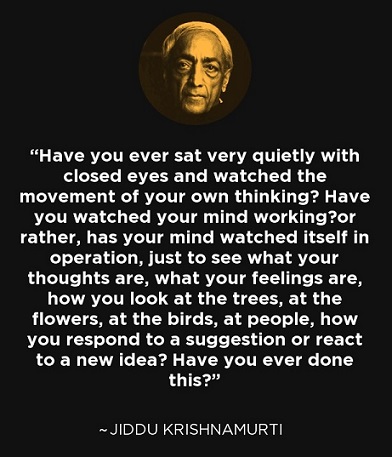
open a channel
|
“Surrender and acceptance,” as the mystics and spiritual teachers use these terms, is not about passivity or weakness, not about giving up, giving in, or checking out. It’s about keeping one's mind and spirit unfettered and teachable. It’s about maintaining an “open channel” so that Universal Intelligence can lead and guide us into all truth.
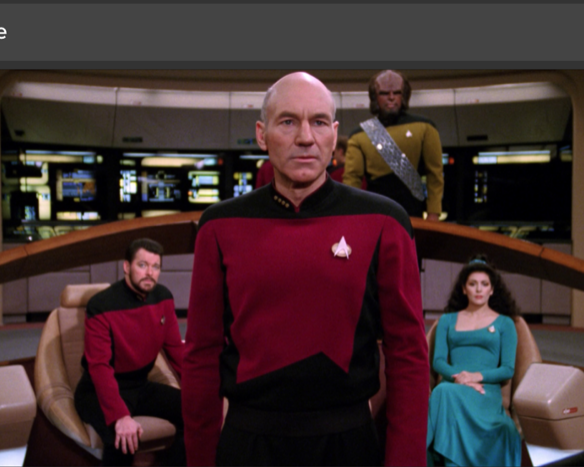
"open a channel"
|
the trouble with “surrender and acceptance”
"Surrender" sounds like something honorable and self-respecting people want no part of. But this is just a problem of semantics and definition. The question is, surrender to and accept what?
When mystics and spiritual teachers speak of “surrender and acceptance,” visions of becoming doormat to the world might easily beset us.
For example:
If someone is harassing you at work, are you to surrender to the harassment and accept it?
If you feel trapped in a bad marriage, are you to surrender to the abuse, or the loveless coexistence, and accept it?
If you feel life is passing you by – be it in the area of love, work, education, or living situation – should you simply surrender to what seems to be your lot in life and accept it?
'surrender and acceptance' has nothing to do with life-circumstance - that’s not what we’re supposed to surrender to and accept
Let’s look at an extreme example to help us understand.
See yourself as an Allied soldier in World War II. The only thing standing between dark totalitarian forces about to sweep over the world, enslaving all, ushering in a new Dark Ages, is people like you, charged with the work of stopping this global threat to civilization. Further, let’s say that you’re an enlightened person, a spiritual person, but with a calling to help stop this madness and depravity.
How does “surrender and acceptance” apply in this situation? Obviously, not by laying down your firearms and giving up. Your job is to destroy the enemy forces, before they destroy your world, your nation, your family, your life.
we are to surrender to and accept whatever Life or God or Universal Intelligence requires of us this moment
The enlightened soldier will be saying something like this:
“I can think of a million things I’d rather be doing right now. I don't want to be here. But if I don’t do my duty, a lot of bad things will happen to a lot of innocent people in the world. I wish I could change things. But until I can, or until things change on their own, I resign myself to being here and doing my part to stop this great evil in the world. I surrender to and accept what Life and God demand of me this moment.”
Notice what this soldier does not say. There is no talk of, “I’m here because I hate the Germans,” or, “I joined the service because I can’t stand the Japs.” For the enlightened mind, there is no motivation founded upon ill-will, or hostility, or rage – even in war. Any of this would just be the Little-Me Ego defending itself. Anger doesn’t make you a better soldier; anger clouds the mind and makes one less capable, prone to mistakes and bad judgment. The ancient warriors of the East well understood this principle.
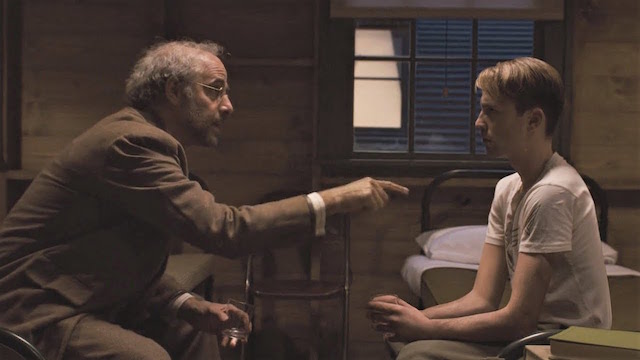
|
Captain America: The First Avenger (2011)
Doctor: “So, you want to kill Germans, do you?
Steve Rogers: “I don’t want to kill anyone. I just don’t like bullies.”
|
And what about our common day-to-day struggles? If someone is harassing you on the job, you’ll want to say to yourself,
“Alright, at this moment, this is how it is. I acknowledge, and surrender to and accept, what Life or God is requiring of me this moment in terms of lessons to be learned. I am not in a hostile frame of mind, nor will I indulge in bitterness with a ‘woe is me’ attitude of victimhood. I’m going to beat this and survive, and today I’m going to start to push back against, or talk to, this person who’s attacking me. I’ll do what I have to do to help myself, and, if need be, if worse comes to worse, I might even seek legal advice or maybe look for another job. But, in the midst of whatever I do to defend myself, right now, I surrender to and accept what Life or God is demanding of me this moment. There is no hostility in my spirit.”
If you are feeling trapped in an abusive or loveless marriage, you might address yourself this way:
“I should never have agreed to this relationship. I was too needy at the time and didn’t know my own mind. I have no one to find fault with but myself. This is where I am right now, at this point in my life. I’m not trying to deny that I messed up. At this moment, this is how it is, and I surrender to and accept that I need to grow up and learn some hard lessons from Life and God. I don’t want to blame anyone else, I don’t want to have an angry or hostile frame of mind. But I promise myself this: This very day is the first day of the rest of my life, even, my eternal life, and I’m not going to waste the duration by being with a person who does not love me, and one whom I do not truly love. I’m going to change my situation. I’m not sure what that means yet, but what I do know is that the status quo is unacceptable to me, and I respect myself enough not to remain in a demoralizing relationship.”
Whatever is plaguing you, either decide to remain in it, if you think that’s best, or change it, or leave the situation. Do not adopt a victimhood posture. Take charge of your own life. Be proactive. But, in the midst of all this self-help, or whatever you do, surrender to and accept what Life and God are requiring of you this moment. This means, no hostility, no anger, no self-pity, just an "open channel" to learn.
learning to 'be with what is'
Eckhart Tolle, in one of his lectures, masterfully explains this entire approach, encapsulating it with learning to "be with what is.”
He spoke of “meditation,” which is a very misunderstood concept. Essentially, meditation refers to aligning oneself, becoming one with, Universal Intelligence.
A common objection is,
“yes, I’d love to become one with Universal Intelligence, but right now the kids are screaming, an ambulance siren is droning, there’s a dog barking in the distance, my mortgage is overdue, I just got word that my in-laws will be here in two days, my son was called to the principal’s office for the third time, there’s a nest of wasps on the back porch, my car needs a new radiator,” etc., etc., etc.
We are reminded of Jesus’ parable about the “good seed” of the kingdom falling on stony ground, meaning, the cares of this world stand ready to stultify our spiritual growth with every step we make.
Every day of our lives there’s some new reason – if we allow it – why we cannot become one, align ourselves, with God, with Universal Intelligence. What are we to do?
|
beyond common notions of “good and evil” lies a higher good, which has no opposite and incorporates what the myopic refer to as “evil”
Editor's note:
Nothing of God, nothing of eternal import, has an opposite; only elements of this transitory, polarized world have opposites. For example, the opposite of life is not death; life has no opposite. The opposite of death is birth, both merely ephemeral tokens of mortality.
In “The Wedding Song” we viewed God as singular pervasive reality. This is but another way of saying, “only Consciousness" -- Universal Consciousness – “is real.” All things derive from it and, at best, enjoy a subsidiary existence.
I speak of these things just now because, as we learn to “be with what is,” the temptation will become that of labeling “good versus evil,” and feeling ourselves under attack by the “evil” in the world. But - God is not in contest with "evil."
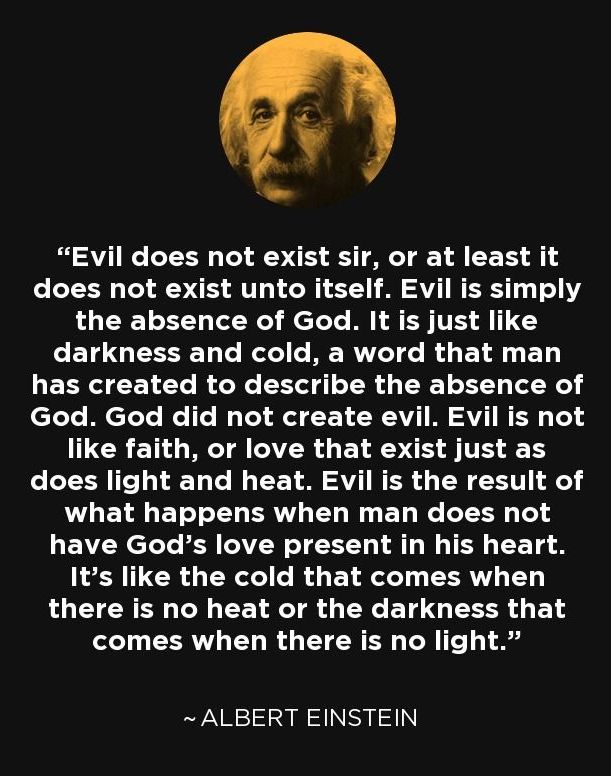
Well, even so, "evil" can be very unpleasant, and, most days, it feels that way. But, from a higher perspective, the vista changes. As discussed in many articles, we learn from the great Spirit Guides that our planet, known in other spheres as “the sorrowful world,” is a place of individuation. We came here for the primary purpose of becoming persons; not necessarily “good persons” – that’s step two in the process, which occurs in Summerland. We came here to develop a sense of self, an ego, a perception of “me” as opposed to “you.” Like making sausage, as the saying goes, it’s not always a pretty process.
When that rude person attacks you, we call it “evil,” and such definition is not altogether wrong, but what’s really going on, from that higher cosmic perspective, is an immature ego trying to form itself. It needs a sense of “otherness” in order to know its own essence. It needs to make you “wrong” so that it can feel “better” and "more" by being “right”; in so doing, it bolsters itself as an independent entity. It needs to make enemies, a sense of “I am against you,” because this fuels its own image of itself as an individual person.
You get the idea. We could go on in this regression of incivility. But let’s keep this larger process in mind as we make our way in this troubled world. What we call “evil” is God’s unruly children attempting to grow up and make a “self” out of themselves; what we call "evil" is the Needy Little Me attempting to deal with its skewed perception of the "false self," ever chanting, "I don't have enough" because "I am not enough."
See more discussion in the articles, “The Purpose Of Evil,” Parts One and Two.
|
|
the purpose of the brain is to filter out, from universal consciousness, anything not correlating with the body’s perspective; in this ‘step-down transformer’ process, separate egos, with separate personal identities, emerge

Dr. Bernardo Kastrup, PhD philosophy, PhD computer science, for many years worked at CERN, the large hadron collider in Geneva.
“… the function of the brain is to localize consciousness, pinning it to the space-time reference point implied by the physical body. In doing so, the brain modulates conscious perception in accordance with the perspective of the body.
a brain that filters implies the existence of unbound mind, a universal consciousness
"When not subject to this localization and modulation mechanism, mind is unbound: it entails consciousness of all there is across space, time, and perhaps beyond. Therefore, by localizing mind, the brain also ‘filters out’ of consciousness anything that is not correlated with the body’s perspective… like a radio receiver selecting [a particular station], among the variety [with] all other stations being filtered out and never reaching the consciousness of the listener…
"[T]he filter hypothesis implies that consciousness, in its unfiltered state, is unbound. As such, consciousness must be fundamentally unitary and non-individualized, for separateness and individualization entail boundaries.
Editor’s note: Father Benson from the afterlife speaks of a being, formerly mortal, five billion years old, so advanced as to enjoy awareness of all life-forms in the universe; in this, we see the future of the ‘unfiltered’ mind. Read More on the “500 hundred tape-recorded messages from the other side” page.
the filtering brain creates the illusion of separateness, of disconnected personal egos
"The emergence of multiple, separate and different conscious perspectives or egos, is a consequence of the filtering and localization process: different egos, entailing different perspectives on space-time, retain awareness of different subsets of all potential subjective experiences, the rest being filtered out. It is the difference across subsets that give each ego its idiosyncratic vantage point, personal history, and sense of personal identity.
Editor’s note: A brain designed to filter, and reduce to a trickle, experience does not substantively support a theory of reincarnation which exalts much experience. We do not come to this planet to gain experience, as such, but to individualize, to transform one’s tiny sub-set of universal consciousness into a personal ego. With this, we become ready for what comes next in the afterlife, even if we are not yet “good” persons, which can be accomplished later, but only after one becomes a person in one’s own right. Read More on this need for individualization.
"The subjective experiences that are filtered out become the so-called ‘unconscious’ mind of the respective ego. Since each ego allows in only an infinitesimally small part of all potential experiences … the ‘unconscious’ minds of different egos will differ only minimally… As such, the filter hypothesis, unlike materialism, predicts the existence of a ‘collective unconscious’; a shared repository of potential experiences that far transcends mere genetic predispositions of a species…
the likely origin of the mystical experience
"[A]nd most importantly, the filter hypothesis predicts that one can have experiences that do not correlate with one’s brain states. Since here the brain is seen merely as a mechanism for filtering out experience … when this [filtering] mechanism is interfered with so as to be partially or temporarily deactivated, one’s subjective experience could delocalize, expand beyond the body in time and space, and perhaps even beyond time and space [giving rise to what is called the mystical experience]…”
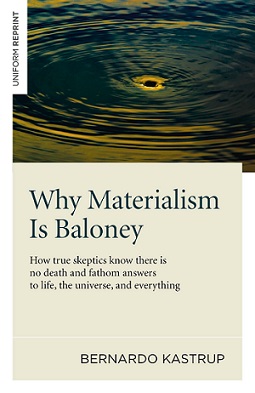
READ MORE of Dr. Kastrup's work on the “quantum mechanics” page
|
our task is to learn to 'be with what is'
The only possible solution is that of learning how to “be with what is” -- no matter what happens. When the kids are screaming, as we make our way to quiet things down, we must also surrender to and accept “what is,” without anger or hostility, this present moment, right now, this lesson in-the-making offered by God and Life, even as we strive to provide remedy.
And when we learn that a son has been called to the principal’s office one more time, in that disturbing moment, we also surrender to and accept a difficult lesson that God and Life is requiring of us. This is the way it is, right now, and it does no good to rage and lash out, but instead we must accept this present moment as it is, and learn to “be with what is,” whatever that might be – even as we make plans to deal with the situation and the son, in order to make things better.
And in this equanimous frame of mind – of no hostility, no anger, no victimhood, but a readiness to be taught – we are to address and remedy whatever accosts us during the day, each day of our lives.
Winston Churchill: "I am always ready to learn, but not always ready to be taught."
And why should we do this? Why should we learn, with open heart and open mind, to “be with what is,” no matter what happens?
We need to do this because God or Universal Intelligence is trying to communicate with us, to lead us into all truth, into a mature and evolved frame of mind.
But if we fight whatever comes our way, if we react with anger and hostility, then we will be “cutting class” and fail to learn what we need to learn in order to prepare ourselves for what comes next.
It’s better to “hand our homework” in now, on our own terms, than to be sent to an unpleasant “detention,” and forced to think about what needs to be done.

"open a channel"
surrender and acceptance as 'relaxing into the resistance'
|
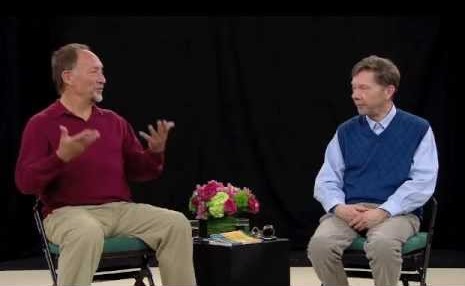
excerpts from a discussion of physicist Peter Russell and Eckhart Tolle on the subject of consciousness
even the question, 'what is consciousness' is a wrong question, as it sends us to something external, because we are the knowing, we are the consciousness
(they begin by discussing Peter's view on meditation)
Peter says that in early years he pursued a structured and formulaic meditation, but today he sees it all as something "getting simpler and simpler."
P. "To me, meditation is letting go" of the mind's fixation on the cares of this world. "It's not trying to stop thought," it's not about "a lot of concentration, a lot of effort," but "it's about not doing anything, but the mind wants to do something... And so I help people to spot, just to notice what is, and just to notice when that slightest bit of wanting and trying comes in... [which is a form of] resisting the present moment.
E. "The very idea that I am 'doing' a meditation can become an obstacle because this thought comes in between you and simply being."
P. "Right. You can't 'do' meditation, but it's an exercise of awareness, a bringing an awareness to what is, and it's the resistance that keeps us locked in, and it's bringing an awareness even to the resistance, so when you notice some slight holding back, just be aware of what that feels like, what does it feel like to be resisting what is?"
E. "You can be the space even for the resistance. And then you can take a step back from there and say, 'there's the resistance' -- whatever arises you can be the space for that."
P. "I say to people, 'don't resist the resistance,' but paradoxically you can 'relax into the resistance.' It's there, you don't try to get rid of it, there's a faint sense of tension here of resisting, ok, just notice it, what is it like, and just relax into that, and, of course, as soon as you do, it just dissolves."
E. "Yes... that's lovely... it sounds quite easy." (laughter from the audience)
P. (laughing) "It is totally easy."
E. (smiling) "It is ease itself."
P. "It is ease itself. However, these minds [of ours] have been trained to “do” things, and they’re well trained to do things well, and to do things better, and so, “maybe if I just tried a little bit harder it would be even better.”
E. "Yes, yes."
P. "We’re so trained in this mindset to “do,” to try, to make things better – and so, in some ways, meditation is an “untraining of the mind,” to step back from all that conditioning we’ve known all of our lives."
E. "Yes, wonderful."
(they begin to speak of consciousness)
P. "I think it's even wrong to use the word 'conscious-ness' because we make it a thing, we make it a noun. As soon as we add '-ness' to anything we turn a quality or an attribute into something we can talk about, it's useful for language, but...
E. "Yes, it becomes an object, a mental object, but is there a better word for this..."
P. "I think we should not use nouns for it, because as soon as we use a noun, whether it's consciousness, awareness, whatever, we make it into a thing, which implies that we're beginning to look for another object, another form of perception, and so even the question, 'what is consciousness' is a wrong question, because we are the knowing, we are the consciousness, and [with this question] we begin to look to other than what we are."
E. "The question immediately makes [consciousness] into an object [of the external world, and deflects attention from the true source, ourselves linked to God]."
P. "And so I prefer to use verbs for this."
E. "Ok, let's see what that sounds like." (laughter from the audience)
P. "Well, 'I am aware' and there is 'awaring', and 'knowing' and there is 'experiencing' -- 'conscious-ing' doesn't work."
E. "With 'awaring,' you have to create a new word to get rid of the inherent error of nouns."
P. "And so I think science is misleading itself by the very act of looking."
E. "Science can never find the answer to consciousness unless or until the scientist becomes introspective... in other words the scientist has to become a mystic."
P. "I think a scientist can become a mystic. I think we need to draw a distinction between science as it's practiced now, the belief-systems of science, a very materialistic [process] as it excludes 'awaring,' and deliberately has done so, because you can't measure it, you can't put a rule up against it..."
Editor's note: See the "Life 1-minute essay" for further discussion from Peter Russell and Eckhart Tolle.
|
mind the gap
|
The Russell-Tolle discussion addresses matters of extremely high moment. However, if you’ve not yet personally experienced what they’re talking about, it might seem vague and unreal to you. Since I have experienced and lived it, I know what they’re talking about; as such, there’s a point or two I might offer to clarify; however, even with my small amending, it will still be unclear until that coming day of entering into this reality for yourself. Nevertheless, consider the following:
There’s a phrase I recall from my long-ago college days in Britain. In the UK subway terminals, you’ll find signs posted: “mind the gap.”
“Mind the gap” means notice the gap, be aware of the gap. There’s a rather large space between the platform and the train-cars, and one needs to be careful when boarding or exiting.
“Mind the gap” is good instruction for us, too. As we learn to sense the life within, we’ll be able to say, “Here’s the real me, the true self - and over there, not part of the real me, are all the egoic aspects of self: the fears, the worries, the incessant chatterings in the head.”
This is what Russell means when he says that we need to “step back” from all of the “mind conditioning.” This stepping back or letting go is the “untraining” of the mind,” as he puts it. Why does the mind need to be untrained? It is so because the mind naturally, due to years of conditioning, believes that more “doing” will solve every problem. Of course, sometimes “doing” is called for; “doing” works just wonderfully – except for the most important issues of life.
Why does the mind naturally opt for “doing”? It does this because, in its current state of blindness, it knows nothing of “being” and so, by default, is shunted toward “doing.” The egoic mind is ignorant of its real identity, the true self, composed of Universal Consciousness. It’s currently incapable of “minding the gap.” It perceives no space, no gap, between its essence and egoic mental constructs. Without this gap, one’s sense of self merges with the egoic thought-forms, seemingly becomes one with them, identifies with them. This systemic illusion is what needs to be expunged and “untrained” from the mind.
Tolle said “you can be the space for the resistance.” The “resistance” is the egoic mind, long-conditioned as an extension of the “false self,” ready to fight any notion of believing that it's part of Universal Consciousness. This false self, for many years to come, and many times a day, will try to take you over, and take you back, into its domain of egoic thought-form. To “be the space for the resistance” means to simply allow this enemy within to put on its Halloween mask and try to scare you into subservience; allowing “space” means allowing it to be – don’t fight it. Just let this energy spend itself. It cannot hurt you. It’s just a phantom with no real power. All it can do is to make you temporarily feel bad – it’s done that for decades – by playing “sad movies” in your head. But if you awaken to the reality that it’s just a “movie in the head” with no real substance; if you simply allow it to play the part of the hobgoblin with attempts to scare you; you will rob it of its power, and then it will simply “dissolve.” However, like the Terminator, it will be back to try to take you over again, with new scary movies, new fears, but its power will grow less and less, as you are no longer deceived about who is the “real you.” This “allowing” is what Russell means by “relaxing into the resistance.”
I decided to write these clarifying paragraphs as I considered Peter’s phrase, “just notice it, simply notice the slight resistance, the wanting and needing trying to slip in.” Despite the wisdom of these words, a small amount of clarification is helpful. It’s best to witness the resistance from the vantage point of the safe-and-secure true self; because, if we do our noticing while being taken over by the false self, that is, without even realizing that there is such a thing as a true self, then we will be witnessing, or “noticing,” ourselves slipping into more and more despair. I’m sure Peter realizes this, and it’s difficult to speak to everything in a short discourse, and so, since this might be a cause of confusion for some, I decided to offer a short commentary. And I will tell you this: though I’ve been working with the “true-false self” issue for many years now, these clarifications help me, as well, because the “false self” does not give up so easily, and will attempt to overthrow you, every day of your life.
Why does it have to be so hard? Why does it have to be this way? It’s part of becoming a true person. It’s part of what Spirit-Guide Abu called the soul’s sacred individualization process. It’s like muscle-building, weight-lifting. Every time we assert the ontological powers of the “true self,” we strengthen our authentic sense of self – the eternal true self, that part of us, the “real” us, that will inhabit and traverse eternity. We’re building for the future; a very long one.
a castle with a moat
The true self is like an impregnable castle, surrounded by a moat. Why is the true self like an unassailable stronghold?

|
Mind The Gap: the moat around this castle is like the "gap" or “space” around the “true self.” But this gap, as per our castle analogy, is not for protection but is a field of awareness, a perception of “what is you” as opposed to “what is not you.”
|
It is so because our essential essence is not made of fading matter but indestructible Universal Consciousness. As we’ve discussed elsewhere, “only Consciousness is real,” and so what we are on the deep-inside constitutes the only reality. Other perceptions flashed to us by the "false self" are mere pretenders to the throne, and cannot harm us. In this world, our true identities, wrapped in seeming mortality, do not fully manifest, but in a world soon coming, one missed heartbeat away, we will be revealed, especially to ourselves, in our immutable, incorruptible immortality.
Editor’s note: In the taped lectures of Spirit-Guide Abu, the ancient sage states, to the effect: “No one can hurt you. People in this world may do unkind things to you, but none of that incivility, though unpleasant, can reach your essential essence, your soul. There will be no lasting damage. However, it is possible for you to damage yourself if you were to become bitter or vengeful toward these immature spirits.” This is exactly what Jesus said, as well: “Do not be afraid of them. They can only kill your body.” And that’s not very much. Further, Spirit-Guide Abu has a pet phrase that he likes to use: "You have the horses"; meaning, "You're in charge of your own life. You guide and direct your own destiny"; which is to say, "Make it a good one. Be a bright star. Be all can be. No one can or will stop you. This is not possible as Mother-Father God are fully behind you in all of your sacred endeavors."
'the kingdom of heaven is in your midst'; or, as some translations have it, 'the kingdom of heaven is within you'
I’m reminded of an assertion of Jesus: “the kingdom of heaven is in your midst.” Some churches, threatened by the “made-in-the-image for all" principle, errantly interpret this New Testament verse by saying, “Jesus meant, I am plainly standing here before you, in your midst, as the great ambassador of God’s kingdom, and a member of the Trinity.” (See "The Wedding Song" for a discussion of “eisegesis,” a diseased literary analysis of injecting one’s own prejudices and private viewpoints into another’s message.)
However, there are many things wrong with this interpretation – see my “Jesus article”. But the best way of determining what Jesus meant is by reviewing the immediate context of his words. See this in Luke 17:21. Essentially, he said,
'Look! It's up there!'
“The kingdom isn’t something you can point to. It doesn't have three-dimensional elements. You can’t gaze in the sky and say, ‘Look, there it is!’ or you can’t see it on the horizon and say, ‘Look, over there, it’s coming our way!” No, none of that. The kingdom of God is not something material or made of matter. The kingdom is in your midst; the kingdom, if you have eyes to see, is within you, in your very hearts and souls.”
We know that this is what Jesus meant because in other places he said the same thing in different words. For example, in John 4, in his conversation with the Samaritan woman at the well, he said, to the effect,
“You have life eternal, inside you, right now, like a natural reservoir of living water, an artesian spring of refreshment, that effortlessly bubbles up to the surface of life, with no work on your part required at all.”
what does this mean for us
What is the practical significance of “the kingdom is within you”? It is most wonderful knowledge and presages a most wonderful future.
Many people look forward to “going to heaven”; and it is well that they should. However, they desire this not so differently than a longed-for trip to the white sand Cayman beaches; or even a trip to Disneyworld.
A trip to heaven, to Summerland, is marvelous, indeed; as would be a trip the Caymans or to Disneyworld. The new arrival, to any of these destinations, would experience a sense of thrill, of relaxation, and pleasure. However, without something more, eventually, the good vibes of it all would begin to fade and even disappear.
We know this because there are millions or billions on the other side, even in the “good neighborhoods,” who have slipped into a form of mental dysfunction. Actually, it’s not so much that they’ve acquired this mental imbalance over there, but that they took it with them from this world. After the novelty of the “good life,” all the material pleasures of Summerland began to wear thin, the old “false self” reasserted itself and started to contaminate whatever they thought about. See my extensive article, “The 500 tape-recorded testimonies from the other side.”
we cannot escape ourselves; but that could be very good news
The truth is, wherever we live in the next world, our joy and pleasure will not issue as a function of our zip-code. We might choose to remain on a “lower” level of Summerland – quite beautiful, far more than anything on the Earth – if we believe that our best service might be rendered there; or we might opt for some so-called “higher” world; but, if we do, spatial positioning will have nothing to say about our sense of well-being. It doesn’t matter where we live.
Like that castle with a moat, an invincible “kingdom unto itself,” we – linked to Universal Consciousness -- at each and every moment, within the sanctity, the “holy of holies,” of our own minds, possess all the heaven we shall ever know.
we cannot escape God’s mandate that we ‘come alive’
We are required to find our true selves; it’s built into our deepest nature. We will not find our lasting joy, in this world or the next, without this existential discovery.
But think of the positive aspect, what this really signifies for us. If the “kingdom is within us,” then this means that we take heaven with us wherever we go. Heaven, joy, ultimate reality, in its essence, is with us right now. To reference Jesus, we can’t say, “Look, there it is on that higher level of Summerland, and if I can just make it to that ‘better 7th-level of heaven,’ then life will be good.” But it doesn’t work that way; even though there are billions of deluded ones over there, as in this world, who do believe that heaven, in its most meaningful sense, is a place you travel to.
Yes, of course, we do wish for better accommodations to come, a better world of flowers with brighter colors – all this and so much more will be utterly wonderful; but without an accessing of the “true self,” we won’t be able to fully enjoy, or sustain ourselves with, any external blessing. This includes your Twin Soul, which we've discussed in hundreds of pages.
In order to discern the "true self," we'll need to "mind the gap." When we are able to perceive the intervening space, we'll also be able to sense who we truly are, in contradistinction to who we are not.
|
|
Dr. Carl Jung: “Knowing your own darkness is the best method for dealing with the darkness of other people. One does not become enlightened by imagining figures of light, but by making the darkness conscious. The most terrifying thing is to accept oneself completely. Your visions will become clear only when you can look into your own heart. Who looks outside, dreams; who looks inside, awakes.”
Editor's note: "Opening a channel" allows us to see where we've gone wrong. Jung, in his own words, expresses Jesus' teaching of "first remove the beam in your own eye, and then you will see clearly to remove the speck in your brother's eye."
|
|
the moment of becoming a sane, really free, human being
“I'm simply saying that there is a way to be sane. I'm saying that you can get rid of all this insanity created by the past in you. Just by being a simple witness of your thought processes. It is simply sitting silently, witnessing the thoughts, passing before you. Just witnessing, not interfering not even judging, because the moment you judge you have lost the pure witness. The moment you say ‘this is good, this is bad,’ you have already jumped onto the thought process. It takes a little time to create a gap between the witness and the mind. Once the gap is there, you are in for a great surprise, that you are not the mind, that you are the witness, a watcher. And this process of watching is the very alchemy of real religion. Because as you become more and more deeply rooted in witnessing, thoughts start disappearing. You are, but the mind is utterly empty. That’s the moment of enlightenment. That is the moment that you become for the first time an unconditioned, sane, really free human being.”
Osho, Indian mystic, (1931-1990)
|
In the "sitting quietly in a room alone" book, I offered a page discussing how the ego is like a circus rider:
desultorially yours
Maybe you know the word “desultory.” A desultory conversation could indicate a quick jumping from topic to topic. The Latin root is desultor (n.), "a rider in a circus who jumps from one galloping horse to another.”
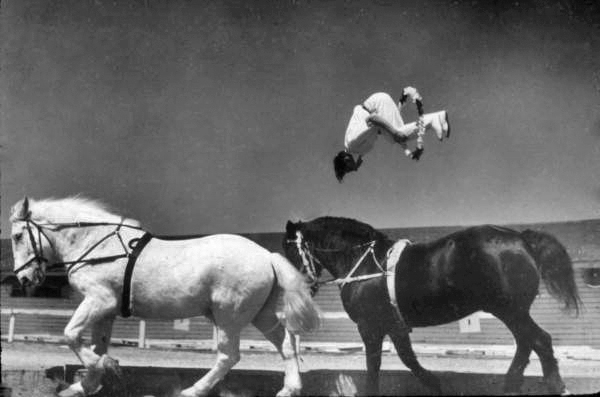
The dysfunctional Ego is like this circus rider. The moment you try to slow it down, stop the action, it will jump to a new thought, and then another, and another. The harder you try, by sheer force of will, to sequester it, the more it will leap from horse to horse. Instead of forcing and applying mental pressure, we will need to learn, as Peter Russell put it, how to “relax into the resistance.”
|
the many shape-shifting images of the Needy Ego have one thing in common
As the Ego rides through the psyche in its desultory ways, jumping from one image to the next, we eventually sense that all cinematographic representations have one common element: they all feature some aspect of “otherness,” some version of “me against them,” some scheme to avoid feeling "less" by getting "more." The kaleidoscopic array will portray persons and things as relating to:
Fear, an expectation of becoming or having "less"
Anger, an opportunity for ego-repair after being made to feel "less"
Scheming Revenge, plans to feel “more” by making someone else "less"
Sexual conquest, taking one's pleasure from, exploiting, another, which is an attempt to cover personal pain, a feeling of "less"
Depression, a defeated outlook without hope of “more”
Boredom, a mask to pretend we aren’t afraid of becoming "less"
Cultish subservience, a cowering surrendering of autonomy to a superior power, which is an attempt to become "more" via some external force
Terror, an open acknowledgment of “I will soon have nothing”
In all these, the Ego casts itself as either victim or perpetrator in a drama of “getting more” or “having less.”
Why were we created this way? As discussed in other articles, as per the testimony of Spirit Guides, the Ego is a temporary developmental stage meant to sharpen our sense of personhood.
It’s part of the individuation process. The recurrent insistence on “otherness” in all that the Ego does, while not pretty, furthers the long-term goal of making us autonomous individuals.
|
I have come to see that many, not all but many, dreams reflect this "desultory" aspect of the ego. Many of our dreams are nothing more than a nocturnal continuation of what we experience much of the day; in that, we find the ego jumping from one idea to the next in an effort to effect individuation.
|
Honey, I shrunk the ego! - what does it feel like to be made small?
The next time you feel attacked, maybe someone smirks condescendingly at you, wants to make you the cause of the problem when you’ve done nothing wrong, or maybe you are to blame – then, be on guard, one’s ego will find a way to defend itself.

male Frigate bird on alert
It will inflate itself. Next thing you know, even if you didn't want it, you're in a shouting match, or worse.
But, if we can maintain a sense of presence to inner energies, not lose ourselves to rage, or quickly recover an equanimity, then – notice what happens.
As one consciously and purposefully allows one’s ego to be diminished without counter-attack, there will be an initial reaction of disorientation or out-of-control. The ego isn’t accustomed to laying down its arms.
feel, and allow, the diminishment
Though it will feel uncomfortable, stay with this perception of depreciation. Before too long, something new will be perceived.
A “mind the gap” inner perspective will begin to formulate. The “I”, an authentic sense of self – the true self – will stand out, differentiated, from one’s exterior persona. This true self will know, or enjoy hintings toward, a certain deeper peace, even while being attacked at the surface of life.
glimmerings of mastery to come
When this happens, suddenly, the ego no longer feels small in the non-response. A beginning perception of mastery sets in – an existential prowess that signals, to oneself, that not only has the true self arrived and taken to itself a dominance, but a step has been made toward attaining a confidence to deal with whatever might come, or assault, in the future.

male Frigate bird in quiet mode
|
|
one's personal sense of 'I Am,' on a deeper level, merges with the great 'I Am'
“If I penetrate the depths of my own existence, to the indefinable ‘I Am,’ that is, myself, at its deepest roots, then through the deep center I pass into the infinite ‘I Am,’ which is the very Name of the Almighty."
“It [higher consciousness] starts not from the thinking and self-aware subject but from Being. . . . Underlying the subjective experience of the individual self, there is an immediate experience of Being. This is totally different from an experience of self-consciousness. . . . It has in it none of the split and alienation that occurs when the subject becomes aware of itself as a quasi-object. The consciousness of Being . . . is an immediate experience that goes beyond reflexive awareness. It is not ‘consciousness of’ but pure consciousness, in which the subject as such ‘disappears’.”
Thomas Merton, monk and priest, (1915-1968)
|
|
following the bread-crumbs of every thought, every feeling, back to source
We speak of “going within,” of “standing back” and witnessing the antics of the ego. What does this mean in actual practice? It may signify many things but, one thing for sure, it describes a journey to the center of the ego's domain.
In one of his lectures, Krishnamurti asked the question, have we ever followed the directives of the egoic mind all the way to point of origin? See the entire lecture here:
14.July.1968. "To look at ourselves is one of the most difficult things, to see ourselves as we are. How can we bring about this state of inward awareness? Have you ever tried to examine every thought, every feeling, to trace out the source of these to motive and various layers of the mind? This will reveal the whole content of our conditioning."
PBS Nature with George Page, in my opinion, the
greatest animal-kingdom series ever produced
When we embark upon this self-introspection, we will find that much of what motivates us, especially in the unenlightened state, is lock-step in line with the bio-impulses which govern the activities of our fur-and-feather brethren.
we follow our bellies
In the unenlightened state, we follow our bellies. Our hungers and cravings lead us. Everything we do, essentially, serves to stave off the ghoulish hand of death. We fight for survival. We sell our souls for fleeting moments of bio-stimulation – we call this “happiness” – a crust of bread, an opportunity to procreate, a more secure position to ward off danger. All the beasts of the field live and die by the inglorious credo: eat, procreate, fight, sleep, defecate, guard one's territory. (See Dr. Ernest Becker's related comments in "The Denial Of Death.") This is what passes for living on “animal planet.” As Bugs used to say, "monotonous, isn't it?"
Editor note: The primordial “thrill of the hunt” is well preserved in today’s out-of-proportion emphasis on violent sports. Historians Will and Ariel Durant comment: In the very word game "memories of the chase linger in the pursuit of anything weak or fugitive." There is a reason why Neanderthal sports are so popular, but we hesitate to spell it out.
driven: communion with the beasts of the field
When we lie in bed at night – meaning, when the distractions of the day fail to readily protect the mind from its fears – sense the bio-neediness. Can we feel the animal cravings, the hungers, the fears of survival? – all of which mayhem longs to envelop us as the only reality.
shared biological fellowship
Allow these impulses to invade. Do not fight them but mentally open the inner eyes to see what they’re made of. Permit them to ravage but, this time, follow them back to source. When we do, we will find that much of what we call the ego’s dominion is simply that of shared biological fellowship with, what Saint Francis would say, our “dear brother” animals.
Our animal proclivities are not something "wrong" as such but only inadequate to take us to where we need to go. We are more than bio-fever on legs but contain another nature, a spark of God, begging for unfoldment, whispering of grander destiny.
|
|
10,000 faces of the resistance, 10,000 masks of the Ego's grievances
My spirit seeks for analogies, ways of making plain to those who’ve not yet entered this process, what it’s like to meet the Ego’s resistance.
An image from the movie “Terminator 2” comes to mind – the gospel according to St. Arnold. I’ll try to explain.
When you sit in your quiet room alone, as the book suggests, and as you attempt to still your mind with breathing exercises, you will encounter unexpected resistance to any effort to calm your spirit.
What is it like?
In the final scenes of “Terminator 2,” the readily morphing, liquid metal T-1000 has pursued Sarah and John with intent to kill. However, the Terminator stumbles into an inferno of molten metal and begins to disintegrate. In its writhing agonies, its death contortions and convulsions, the high-tech assassin shapeshifts into various expressions of its past self:
10,000 ways to condemn yourself
Editor's note: What we call "the Ego" is a developing sense of self, of individualized personhood. It's not really an actual entity, but it can seem to work like one. We need this perception of autonomy to live our lives as full persons, and "the Ego" is part of the developmental process to individuate us. The sense of "otherness" makes us feel our own powers of individuality, which is required for maturity. The whole process, though, can be very messy, will be called "evil" by the myopic, and might cast us into despair at times, until we realize how things work.
The Ego, the “false self,” has 10,000 tricks, 10,000 distractions, 10,000 stealth schemes, 10,000 bogeymen to convince you that you do not have enough, moreover, that you are not enough.
When you sit in the quiet of a room alone, with intent to bring some peace to your mind, suddenly, seemingly out of nowhere, disturbing images of the past will pop into your head. There are many different forms and shapes to cause you discomfort. It might be an image of someone who:
insulted you
lied about you
physically injured you
borrowed money, didn’t pay it back, and then claimed that it wasn’t owed at all
took credit for what you did
expressed love but then betrayed you
made up a bad report about you because they were envious of your accomplishments
The Ego cares nothing for you personally and can easily switch sides and cast you in untoward roles -- bad things you’ve done or have tempted you, or could. It will try to convince you that you are a "sinner" and deserving of guilt; it will push you over the line into visions of yourself engaging in:
manipulation
retaliation
exploitation
perpetration
revenge
deception
violence
and many other images of yourself taking part in
an array of horrid scenes
The Ego is remorseless. It will paint you any which way it can, create a hall-of-horrors to make you feel as the “outsider,” the one who is alone, one who is corrupted, suspect, checkered, afflicted. All these – unless we learn how to flip the “off switch” – grant the Ego power over us as it forces us to play the role of “the other,” the one who is "separate" and tainted, not good enough, unloved by God and man.
Editor’s note: As we learn of the dark dynamics of the Ego’s wiles, we begin to perceive how readily Big Religion rides the wave of this mayhem, takes advantage for power-and-control purposes, as it encourages its hapless cult members toward perceptions of fear and guilt, of “I’m no good,” and “God could never forgive or love me.”
slippery
But even all this disingenuity does not truly convey the wiles of the Ego. If you haven't experienced this firsthand you won't get the full sense of the deviousness in play. The Ego is very slippery. It’s like the liquid-metal Terminator, easily shapeshifting from one dismaying image into another.
The flashing tawdry images can come rapid fire, flitting across the movie-screen of the mind -- until you learn how to shut down the power of the Ego in your life.
See yourself now:
There you are, sitting in your quiet room, breathing deeply so as to calm your mind. A bad image of the past plays its "sad movie" in your head. You recognize the tactic. You continue to breathe deeply, focusing your energy toward the "inner body," thereby dislodging and deflecting the bad image.
the 10,000 shapeshifting images of grievance
But, as you fend off one blow, almost immediately, you feel another, as a different "liquid metal" image of "otherness" now conjures itself into some other problem and then parades in your head anew.
The Ego, the "false self," will re-morph itself like this, sometimes, for a long time, trying to take you over, trying to take you back into a spirit of negativity and hostility toward the world and life itself. It wants you to identify with the grievance. It wants you to believe that this is who you are. It wants you to wallow in feelings of "I was hard done by," and so "I am no good now," "I don't have enough," because "I am not enough." This is how the Ego will run your life, pulling your strings, keeping you off-balance, in a fretful, needy, fear-and-guilt frame of mind.
You won't notice this entire process so much when the Ego has near-total control over you -- you'll just think, "this is who I am" -- but when your "eyes begin to open," and you sit in that quiet room for the express purpose of dislodging and unveiling the Ego, then be prepared for the Ego, like a cornered animal, to fight for its survival.
operating in the dark
The Ego is used to transacting business in the dark. It wants you to believe that all this is your doing, that the essential you is the cause of this chaos. But as you shine the light of consciousness on the "rats' nest" of the Ego's activities, you will discover "the gap" (see above), who you really are, and now the Ego will desperately lash out to keep you from wandering off the plantation.
Eventually, it will give up -- for a while; but then it will be back with a new scheme to make you feel that everyone and everything is "other." The dysfunctional Ego needs you to feel "other," "me versus them," and alone in the universe. This is how it fuels its power, keeps you emotionally isolated, nurses the grievances, the sense of "hard done by" and "I'm no good."
sunlight is the best disinfectant
Shining the inner light of consciousness on the Ego is what having a spiritual practice means. It doesn't mean thinking you're Pollyanna, with sunshine and hearts-and-flowers stickers on your bathroom mirror; these are fine, but they won't take you to where you need to go. Becoming a truly spiritual person is more like hand-to-hand combat in the trenches, with only one to survive the ordeal. It's a fight to the death.
And this is why Jesus said "take up your torture stake and deny the self" -- the false self. It won't often make you feel pretty. And when you enter this process, many times you will cry in dismay with, "I am getting worse, not better!" But, you're not getting worse. It only feels that way because now your eyes are opening and you've become much more aware of how devious the "false self" has been, how it's tricked you all of your life into thinking you're someone you're not.
Special note: You will reach a point where you'll be sensitized to the Ego's common tricks, all the "sad movies." But do not think that the Ego will give up. Instead, it will try to enter the house by the back door: When you begin to have some success at shutting down the "sad movies," there can be a tendency to relax one's guard and maybe begin to feel, "I'm really getting into this now. In fact, I'm doing so well that I think I'm more of a spiritual person than anyone I know." In a sense this may be true, but, paradoxically, with this rash statement, we eat the poisoned apple of "I thank thee Lord that I am not like other men" (see the four articles on "Spirituality"). And now we set ourselves back with pride.
But don't worry, we can get back on track. Stumbling is normal. The Ego lives in a bunker, has spent a lifetime entrenching itself in our spirits, fortifying a battery of neurotic mental habit patterns, and it will not be disgorged in a day. It will temporarily win a round with a "back door" technique, once again imposing its sense of "otherness." How? When we slip over the line and feel that we are "better," more deserving than the crowd, in this hubris we also make them "other."
This doesn't mean that we cannot be pleased with our personal-development success so far; nothing wrong with this. But it goes wrong if we see ourselves as intrinsically "better"; then we've been taken over again, and we're back to being one of the inmates in the asylum. In this bloated and unrealistic sense of self, compassion and good judgment flee from us, we can no longer feel "others" to be brothers and sisters; we lose perspective that -- all of us -- are just part of the human family, trying to make our way home, afflicted with a common task of seeking for maturity.
|
|
the vice of the virtuous
In my own case, I find at times that this self-reading of “getting worse” is linked to a heightened sense of one’s own dark side. It becomes uncomfortably too real.
And I would say that, especially if one comes from a conservative background, the reality of the “heart of darkness” can make one feel extremely disoriented.
Elsewhere I have spoken of “unearned guilt” and this too begins to oppress one’s spirit. Anomalously, one can even begin to react or to see oneself, virtually, as a criminal, which is very unpleasant. I came to understand that all this confusion is part of the “long dark night of the soul.”
But why should we be required to enter this detour into a personal hell, seeing the darkness, up close – sometimes, the “madness maddened” -- within one’s own deeper person? Why can’t we simply say, “I want to emphasize positive things in my spirit, focus only on good things, and ignore and suppress the darkness within?”
The answer here is complicated. Many, in fact, do allow this form of repression. But, at what cost, and to what effect? I have come to see that true spirituality will be founded upon a perception of both the light and the dark in one’s person – which is the universal condition of humanity; no exceptions.
It’s become clear to me that, without seeing both sides, one becomes neurotic and will enter that self-delusionary world of “I thank thee Lord that I am not like other men.”
When this happens, there can be no authentic compassion for the down-trodden, service efforts become tainted with pride, one will unwarrantedly judge oneself to be “above” and “better,” and now, at best, polished manners will conceal a contempt for the weak, a cloaked, “If you were as good as I am then you wouldn’t be in this confusion.” Many have trouble believing that, with sufficient provocation, or cultural conditioning, or substantial duress, one might commit any crime of history.
And in this gross illusion of "I am better, I am chosen", a new form of evil rises in the world, and we become useless in terms of authentically representing the love of God. Some have called this hidden cancer, “the vice of the virtuous.”
|
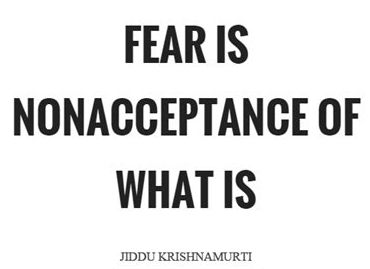
|
this world cannot be fixed, only forsaken; so too with the individual attacks of the dysfunctional ego
The life lesson I’m about to comment on evaded my understanding for decades.
Elsewhere, and somewhat frequently, I’ve referenced Adrian’s insight, borrowed from the ancient Gnostics, that this world cannot be saved, but only transcended. No “kumbaya” effort, as I use the term, will remedy the egoic insanity on planet Earth.
Recently, however, it became more clear to me that the principles in play for this macroscopic view are also relevant on the microscopic level. Here’s what I mean:
relentless
As we’ve discussed, the dysfunctional ego will attack us, maybe, hundreds of times a day. It is relentless. It’s constantly looking for a way to make us feel “separate” from all aspects of God’s creation. The ego will try to turn us against people, or the news of the day, or the weather, or the letter you just got in the mail, or the stock report, or life itself. It could be anything, it doesn’t matter, the ego will even try to make you think ill of your best friend.
fighting yesterday's battles from the comfort of your bedroom
And many times, nothing will have changed in the environment. We might be lying in a comfortable bed at night, all quiet and cozy – but then the ego will bring up a memory from some past slighting or grievance, and now we’re off to the races one more time with “sad movies” being played in the head. As we said, this discomfiting process might enjoy hundreds of iterations each day!
how to deal with these attacks to our peace of mind
When an egoic attack comes, our natural reaction is to try to solve the problem. We want to analyze what happened, and what didn’t, who’s to blame, who should have done what, and who should pay now. This reaction is a defense mechanism. We feel diminished in these attacks and we want to make ourselves whole again. We’re looking for a way to enhance ourselves – via anger, unforgiveness, retaliation, or bitterness – we want to make ourselves “more” when the ego makes us feel “less.”
can-do people don't like to hear talk about 'there is no solution'
However, all of this analysis, justification, and seeking for remedy against the wiles of the ego is the same process we find on the macro level among those attempting to secure world peace. It won’t work. Nothing will work, in a lasting and deep sense, as long as the ego runs people’s lives with those hundreds of attacks each day.
What to do?
When the next attack comes – and don’t worry, it won’t take long – do not try to solve, analyze, or defend. Simply dismiss the mental vision. Do not invite it in for a cup of tea to discuss. No. Just send it on its way without comment. Rob it of its power. It has no power if you do not acknowledge it.
immediately 'go within' and rob the ego of its power
What does all this mean? How do we address this in a practical sense?
It means that, when we are attacked by the ego, we are to immediately “go within.” Take a deep breath, focus on the inner energies – and the attack will immediately, or very nearly thereof, evaporate as the illusion which it is.
|
Editor’s special note: Sometimes, the attacks of the Ego can be so severe that deep breathing will provide only partial relief and remedy; meaning, the “sad movies” and the bad images cannot be shut down. During these times of duress, I have found that, in addition to breathing deeply, one needs to focus on the inner energies. For example, focus on your hand. Can you feel the tingling sensation? I have discovered that when this sense of scintillating life in one’s hand, or other parts of the body, is accessed, the oppressive Ego-induced mental images will immediately shut down. Keep this focus in play for a time because the Ego will be back. Just continue with the deep breathing and the focusing on the inner life of your hand, and you will find the bad images dissipating. Add to your success now by envisioning something very pleasant, something you love. With this, the Ego will be firmly set back – for a while.
|
the reality is, some problems have no solution
The world cannot be saved because 99%+ of the apparently-sentient creatures on this planet are led by the ego. This is by design; temporarily so.
In the meantime, some can escape right now, but the parasite must be defanged. To do this, when it attacks, one must immediately neutralize its attitudinal poison, before it takes hold to infect the mood of its host. Do not allow its claws to dig in and create a psychological base of operations. Dispatch it in a moment.
President JFK once said that some problems have no solution. It’s just the nature of the case, and you can’t change it. It would be like preserving the proverbial "snowball in hell." It’s not going to happen, it’s just how things are. So too, this world cannot be changed, not in a lasting and meaningful sense; nor, on an individual basis, can we remove our predisposition to the ego’s attacks. In both cases, these are not problems to be solved, as such, but to be transcended; these cannot be fixed, only forsaken. The answer is to rise above.
like embroilment in foreign wars which cannot be won
To restate: When we are tempted to suffer the pangs of grievance, orchestrated by the ego, we are not to analyze and seek for solution. This does not mean that problems in our lives should not be objectively dealt with. If possible, we should try to solve the problem, attempt to reduce or remove pain from our lives. But this attempt to solve a problem in the real world is an entirely different issue. When the ego presents to our minds problems in the form of a “feedback-loop sad movie,” these have no solution. They have no solution because when the ego reinterprets a problem of our lives it will do so in terms of its own bottomless pit of inner neediness, which is the dwelling place of the ego. No amount of content, even all the world or the universe, is enough to fill it up or make it right. And so these egoically reconstituted problems, flashed upon the movie-screens of our minds, are not problems to be solved, because their underlying basis is the forever-unsatisfied ego. The ego cannot feel satisfied and good about itself. Therefore an ego-reformulated problem, which may or may not have a solution in the real world, can never have a solution in the never-enough realm of the Little Me. And this is why, when the ego attacks, immediately dismiss its onslaught. What it presents is not a problem to be solved, but only transcended, with the better realization of universal abundance, accessible via the sacred soul, the true self.
Editor’s note: This issue of “some problems have no solution” and must simply be dismissed has been on my mind more and more. They're like foreign wars which cannot be won, it will be your Viet Nam or Afghanistan. There is no solutiuon. And it seems that we go through phases when the ego tries certain tactics, again and again, to “take us over.” Lying in bed late at night, I found myself beset with images of high school and potential fights with bullies I might have gotten into.

How strange. The scene for all this drama is getting close to 60 years ago, and many of those players are already good-n-dead, but here I am in bed, feeling nauseas, as if I might have to face their gauntlet tonight. It's insanity. Clearly, this, and so many other similar sad movies in the mind, just need to be dismissed. Do not try to “solve the problem.” There is no problem, but the ego will run you around and ragged trying to make you deal with something that has no solution. The ego wants to make you feel “other.” It’s trying to strengthen a sense of “self” by pitting you against imagined or once-upon-a-time adversaries.

But simply dismiss this drama in the head. If it's not dismissed, the besetting images begin to wear us down, whispering to an increasingly troubled spirit that they represent reality, and that we’re not measuring up, all of which can send us to despair. The ego is fine with sending us to despair as it engenders more “otherness.” But we have the power to control these disheveling ego-images. Special note: Sometimes it’s not so easy to “simply dismiss,” but what I find to be effective is to shift the focus of mental energy, let’s say, to my hands, and then the threatening images finally evaporate.
real substantive change
When we learn how to do this, we will be well on our way to becoming a different person. We're talking about effecting real substantive change, not a legal fiction as represented by the typical church ritual; it's real, spiritual, evolutionary change, becoming what we were meant to be.
In receipt of this morphing, all of those vices, big or small, which people might know us by, even since childhood, will begin to drop away as useless appendages. Yes, almost immediately, they'll start to wither. It is impossible, at the same time, both to harbor vices and to become enlightened (which means discovering the "true self").
every human being has the same primary purpose in coming to this planet
And now you’ve won. The “true self” is in charge of your life, or beginning to be. You’ve accomplished the major and primary objective for coming to this Earth.
A Course In Miracles: "Forget not that the healing of God’s [children] is all the world is for. That is the only purpose the Holy Spirit sees in it, and thus the only one it has."
Erich Fromm: "The main task in everyone's life is to bring himself to light."
Congratulations, you've become who you truly are, the one you've always been beneath the egoic rubble of acquired surface personality.
Now don’t be discouraged when you stumble and the ego takes you over again for a while. It won’t give up that easily. Mental habit patterns of a lifetime will not turn on a dime. Do not condemn yourself for falling; be kind to yourself, as you would offer compassion to anyone in need.
the monumental difference in your life - and in you
However, each time you fall, you’ll pick yourself up a little faster, you'll become more and more cognizant of the slipperiness and trickiness of the ego, and soon – along with others around you who will notice it first -- you will become aware of the monumental difference and change -- change for the better -- in your life. Yes, in a while, even you will notice the difference in yourself.
We have spoken of the false self as ‘relentless’ in its efforts to dominate. Is this a force of evil within us?
In the above section, we have discussed how the attacks by the “small ego”, especially at times, can be non-stop. It will dredge up, if it has to, unsavory images even from early childhood, in order to create a “me against them” dynamic. And if one image fails, then another will quickly pop up to take its place. It wants us to feel the separateness, the "otherness."
For a long time, I considered this process to be a festering evil within my mind. But, upon further reflection, this cannot be so. As put forward in “The Wedding Song” discourse, God never creates evil. God sees no evil in anything in the world! From our myopic point of view, however, many painful things on planet Earth can seem – what we call – “evil”, but everything that God provides is for our long-term good.
I have come to understand, my current view, that what I’ve judged to be the “relentless” ego, never giving up, is part of the divine spirit which is insistent -- more insistent than we ourselves would choose to be – insistent that we become individualized, autonomous, expressions of God’s Consciousness. It won’t give up on its goal of making us mature stand-alone sons or daughters of God. It is absolutely relentless in this regard.
Editor’s note: As we sensitize our spirits, by greater degrees of alignment with Source, we begin to perceive how God works in the world. As George Harrison commented from the other side, those “wandering souls”, for whom the riches of the true self lie dormant and “self-[un]discovered,” will see what we call evil. Case in point: the mirage of reincarnation. As Dr. Peebles from the next world stated, those who have not discovered the inner life will want to come back. They see no other way. And consider a channeled opinion by Edgar Cayce such that he wonders how so many wayward souls will ever be saved, even with his promoted many lives. But there is no need for concern here, all is well in hand, because the spirit of God, within each of us, is relentless in its efforts to bring us to sanity. For the hard-core, it many take a thousand years of suffering, but the relentless spirit of God will bring them home – and this, with just one life, which is all anyone needs, because it's eternal.
|
I like this from Deng Ming-Dao:
|
swan rising in dazzling sunlight: becoming who you were meant to be
|
Breakthrough
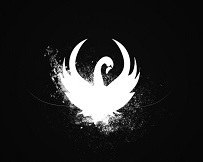
| Breakthrough: “Spiritual practice must be uninterrupted. We may be anxious because we see very little happening on a daily basis, but we must be patient… After long self-cultivation, one’s accumulated energy reaches a threshold and then bursts out, like a swan rising from the water… Once you have reached this level of stored energy, you will be a different person.” Deng Ming-Dao, 365 Tao |
|
If you tell others about “going within” and spiritual practice, most won’t believe you. Instead, they’ll opt for “I’ll become a good person by trying very hard.” However, I’ve asked myself, what convinced me early on to stay with this process, though it might take years for real change? I think it was Tolle’s explanation of the “voice in the head” and the background witnessing presence that drew me. He told his story of a late-night despair – “I can’t live with myself!” – but then recoiled with “Who is this ‘I’ and this ‘self’? Are there two of me?” This testimony impacted me greatly, and I caught a glimpse of what he had discovered. This brief introduction helped me to realize that there’s some sort of hidden life or energy in my mind and spirit that I’d been unaware of. I could feel the difference now between “the voice in the head” and the part of me that knew of its existence. These were two separate things. And I believe that it was this understanding, right at the beginning, that helped me to stay with the “long self-cultivation”, as Deng put it. It would be years before I perceived any real results of personal improvement. Others around me saw it before I did. But, I will say this: Once that “threshold” is attained, the “bursting” will result in a daily surfeit of insights and flashes of perception that will overwhelm. Deng is correct: at this stage, “you will become a different person.” Why does this happen? I think it’s like a tiny seed of godhood buried deep within. It wants to blossom and emerge. The key is to provide the right conditions for germination. We don’t have to try to change, the seed doesn't have to try very hard to bring forth life, for, once it begins, it will virtually steamroll the willing student into new thought patterns, and will change us from the inside out. Hang on to this rollercoaster, as it will take you for a ride. Others will not believe these words. You have to experience it for yourself.
|
A Course In Miracles: The Holy Spirit points the way beyond the healing that it brings, and leads the mind beyond its own integration toward the paths of creation. It is at this point [when one begins to look outside of oneself, more other-centered and less needy, beyond one’s own healing,] that sufficient quantitative change occurs to produce a real qualitative shift. Editor’s note: This is an extremely important point from the Course concerning “a real qualitative shift" and mirrors the assertion of Deng Ming-Dao, "you will be a different person." This also means that what we really need is a ratcheting up of our level of consciousness -- which occurs in one timeless moment of clarity -- not in 100,000 reincarnational lives.
Stated differently, the spirit of God within, this “holy” spirit, will not be content with merely one's own healing but will desire to enter “the harvest fields of God” to help everyone access the inner life. As A Course In Miracles has it, this other-centeredness, an abandonment of egoism, indicates a “real qualitative shift,” a real and permanent change for us.
everything that has a beginning is also subject to an ending
There exists a domain beyond the reach of time’s degradation. In this non-temporal realm, things simply exist, eternally, have always been, have no opposite, no duality, and do not suffer loss.
|
everything the ego does devolves to one central pathology
All this talk of the Ego and its ensuing widespread calamity may seem overdone. Therefore, allow me another attempt to explain the pervasive nature of its sordidness confronting every human being.
What do the following 10 examples have in common?
(1) the elderly lady, visibly frightened of new information which might threaten her view of a particular god or goddess rescuing her upon transition to the next world;
(2) screaming fans, shouting with hysteria, hoping to touch, or even glimpse, an adored celebrity;
(3) billionaire corporate heads employing new technology to increase surveillance on a populace, thereby diminishing rights to privacy;
(4) national leaders, with big sloppy grins, posing as benefactors to the country’s interests, while undermining civil liberties, the rule of law, and taking to themselves more power;
(5) supervisors or fellow co-workers seeking to deny promotion or commendation, though you’ve earned it and are the best choice for the new position;
(6) social-media platforms which censor free speech because of "misinformation," meaning, it doesn't conform to a totalitarian agenda;
(7) materialistic scientists who repress, ignore, or otherwise vilify the "scientific evidence for the afterlife";
(8) a friend, lover, or family member who insults you, slants a story, attacks you, cheats you, because they disagree with, and are threatened by, your new-found beliefs.
(9) the neo-Postmodernist, the delusional “woke” adherent, occupying the lowest level of consciousness, arrogantly and vacuously proclaiming that rationality itself is part of “white man’s” oppression; that, even to be on time for work is a “white thing”;
(10) the soldier, part of an invasion force against a peaceful people, firing on, murdering, civilians because it’s his “duty” to “follow orders” of his imperialistic superiors.
We could go on listing many more: the gossip in your neighborhood who stands by her window, judging and condemning, trafficking in the mundane details of others; the college instructor who ridicules, and punishes with lower grades, those who disagree with his totalitarian leanings; the so-called news-reporter, piously claiming to have entered her profession to “make a difference,” incessantly offering selective and screened factoids to support a hoped-for Orwellian dystopia; the suicide-bomber, or the mad driver barreling into a crowd of civilians, or the shootist, seeking for publicity, or revenge; the high-school friend, once a confidante, but suddenly counting you an enemy when she veers off into new philosophical moorings; the martinet husband, psychologically, or otherwise, abusing a wife whom he does not love yet will not allow to leave his fiefdom.
What is the common thread?
In each case, a needy ego has identified with some power-structure, some external augmentation, some strong “father figure” to the inner child; an adoption of surrogate life, a face-saving production, a seeking to enhance oneself, to make oneself “more” and “above,” to feel important and a “somebody”, a propping up and bolstering, an assuagement of underlying fears of “not making the grade,” of “I am not enough,” leading to a surrendering of autonomy and critical faculties, a victimhood pathology of linking oneself to some external image of authority or purported salvation.
According to the great psychologists, in its deepest writhings, all of these examples represent the fear of death on display. In each case, a perceived locus of one's life and essence, one’s “center of being,” lies outside oneself, stands subservient to some icon of imagined greater energy, wisdom, or value. In other words, in all this dysfunction there is no sense of having been "made in the image," of “being enough,” no personal view of the limitless "inner riches," one's divine heritage as "spark struck-off from God." As such, this deficit leads to servility, to existential crisis, to forms of insanity. And therefore nearly 100% of the denizens of planet Earth are engaged in some form of the above cultism.
|
more than drinking the koolaid
The long reach of cultism encompasses much more than crackpot churches. The root idea of cult offers the sense of "cut." This core concept of "cut" leads us to images of refinement and refashioning and, by extension, development, control, pattern, order, and system.
Cultism as systemization finds a ready home in religion and philosophy which seek to regulate and redistill the patterning and ordering of ideas. However, in a larger sense, the spirit of cultism extends to every facet of society. We find it scheming and sedulously at work in politics, academia, family, corporations, entertainment, science, artistry – anywhere power might be gained by capturing credulous and fear-based minds.
See the “cultism” page for a full discussion.

|
I submit to you, every insult, abuse, affront, contempt, disrespect, misrepresentation, aggression, assailment, invasion, violation, trespass, usurpation, infringement, conflict, and war – in the history of the world, and your own personal history -- have resulted from egos, at the expense of others, attempting to feel better about themselves, pursuing to quash the sense of inner neediness, of “I don’t have enough” because “I am not enough.”
every ego wants something from you
What does it want?
It wants to use you to feel better about itself, to fill up the emptiness inside. It will attempt to accomplish this make-over by (1) comparing itself to you, finding some metric by which it can judge itself as superior; (2) deriving pleasure from you, an effort to cloak the pain within; (3) ruling over you, power-and-control measures, to enhance and propagandize itself; (4) minimizing, discounting what you represent in order to aggrandize its distorted belief system about how life works; alternatively, if demonizing doesn’t succeed, it will (5) surrender to you, call you a genius or a god, by which subservience it hopes to find security and safety under the protective mantle of a “strong father figure.”
We must come to realize what's going on in all of these attacks, and to safeguard our minds.
further distillation
Can we, even more, reduce all of the above to common element?
The ego, at a deeper level, is driven to create a perception of itself as “other.” This generalized sense of “otherness” is then leveraged into a “me against them” lens of looking at the world.
And it’s not just a contrariness toward other people. If others aren’t around, or even if they are, the ego can make us feel estranged from life itself and God, as well, as we set ourselves against these for perceived unfairness.
Why is this important to the ego? According to ancient Spirit Guides, we come to this world for one primary reason: to individuate, to become persons in our own right; all other aspects of development, for the moment, are secondary.
The ego will reconfigure memories and current sensations to emphasize “otherness.” Once we're aware enough to realize what the ego, in ourselves and in others, is doing, this reformulation of mental images can be very unpleasant to contemplate.
But it does accomplish one thing: even though at the quantum level we are connected to all, at the surface of personality “otherness” creates a stand-alone psychological entity that becomes the perception of “I”, which is the very definition of ego.
we come to this world to experience all that is ‘other’
Our purpose in coming to the Earth might be phased in different ways, but in another writing I stated that it is to experience all that is not self, all that is ‘other.’ At the time, I didn’t realize that this summary statement was more apt than I knew.
As I grow older, as I witness the antics of the ego attempting to ‘take me over’, separating me from a sense of presence with the true self, I find the ego relentless in its efforts to make me feel ‘other.’
It’s probably accurate to say that every untoward image the ego displays to the mind is some form of ‘otherness’ in reference to people, things, God, or life itself. It wants us to ‘feel the distance’ and separateness. Every image attempts to do this, from a different angle.
The relentless attacks can make us very weary, but we need to keep in mind that this is a God-ordained process designed to make us individuals in our own right.
will I ever feel good again
Someday, in Summerland, we will, in fact, find rest for our beleaguered spirits, but right now this “boot camp” training can be very difficult. It might be the hardest thing we'll ever do in all eternity. I say this because, over there, as Father Benson says, we'll have much more control over our own minds, plus we'll feel very good just being in the home-world. See the discussion on the "Summerland" page on how good we'll feel just to be there.
Editor’s note: Concerning the above “10 examples,” each of these represents a certain unsavory aspect of the dark side of human nature. But this skews the picture. The dysfunctional ego also operates in the arena of heroic service and commendable, stalwart mettle.
I am thinking of the celebrity artist, athlete, singer, politician or other notable who publicly dedicates his or her life to good works as a result of purportedly drawing strength from a patron saint, religious icon, or savior-god. The ensuing good works might be larger-than-life, consummated even in the face of great privation and adversity. All of which is meant to proclaim to the world, “I do all this by the power of my relationship to said patron saint, religious icon, or savior-god.”
But, is this reality? How are we to view such valorous and epic conduct? Does it happen by way of aligning one’s person with an external divinity?
We would do well to recall that any number of non-religious “secular saints” might be brought to our attention who have nobly, in a lion-hearted way, offered charitable service, even to the point of death. One example immediately comes to mind: Dr. Viktor Frankl, in the concentration camps. He accepted the task of encouraging other inmates, despite near-starvation and often-beatings by the guards. He served the contagious typhoid dying, and, more than once, refused opportunity to escape the camp in order to remain with the suffering.
The dysfunctional ego is led by its foundational premise, “I don’t have enough” because “I am not enough.” As such, it looks for salvation from an outside source. This is pathological and takes us in the wrong direction, far from sacred destiny of living from one’s sacred center, the true self, one’s inner connection to God.
We are not to conduct ourselves as little children, living under the mantle of a “strong father figure,” a patron saint, religious icon, or savior-god.

We are to open our eyes to the inner riches, the innate “made in the image” reservoir of strength, available to all of us as sons and daughters of God.
|
August Goforth, excerpted from The Risen chapter "Ego-mind and The Simulate Selves”:
… the ego-mind, an integral part of our materialized existence, is here to stay, and there are gentle, creative, aware responses that bring the situation to the infinite openness of compassion.
Because we are essentially spirit, all matters of the heart and mind are first addressed in some spiritual way, beginning with directing the will. For most individuals, free will does not yet exist, and much effort will have to be made to gain psychological freedom while seeking the spiritual clarity for which they yearn…
We each must find our own ways—which often cycle and change—to get quiet within. After connecting with the body, talking and listening to it, a course of inner direction will make itself known. There are usually no direct instructions, only feelings that emerge and flow with the spontaneity of a new mountain stream.
We aim our conscious awareness inwardly by directing our attention away from the world assumed to be outside our body. We declare to the Universe/Higher Power/God/Deepest Loved One that we honestly don’t know what we’re doing or what to do next, but that we are willing to receive help.
Asking for help needs no special skills, no holiness or advanced spirituality—we come just as we are. If we don’t know how to ask for help then we can say so and ask for guidance on how to ask, and then be at least willing to trust that some kind of answer will come.
Be willing to be willing without ceasing, especially whenever feeling the slightest hesitation of doubt, and ignore the ego-mind’s insistence that you don’t need help. You may have to find this inner quiet literally thousands of times a day. The ego-mind will be just as persistent in interrupting the silence with the voice of a negative simulate self, because it knows what’s at stake.
I had been reviewing the above references -- the gossip at-the-window, the soulless corporate head, the abusive husband, the big sloppy-grin political leader, the work supervisor with unfair evaluation – and I lay in bed late one night with these images besetting, but then, unbidden, rising from the disorder, accosting me, were memories of the Gladiator movie and the murder of Maximus’ family. I knew this was instruction for me, and I instantly saw the connection, but the horrific scenes made me want to put it all away immediately. The blood-and-horror, however, mentally lingered for some days, and, though I did not want to, I understood that I should write about this.
We see that ten year-old boy trampled to death, and the disheartening question now demands: What kind of a person would do this to another human being? – especially, to the innocent. But in the darkness I saw the answer, the connection among all the aforementioned injustices. Those Roman soldiers, young men, were “obeying orders.” And why would they obey to participate in atrocity?
There was a time when, as a young man at bible college, I too was eager to obey vaunted Dear Leader. And why should I be thus disposed to surrender allegiance? Dear Leader offered the promise of promotion, of authority over others, of secure income, of feeling better about oneself for having been noticed, approved, and validated. I would be a "somebody". The men on those thundering horses 2000 years ago were no different. And under – what psychologists call -- the “numen,” the sanctifying “nod” of Dear Leader, all is washed clean, no matter the barbarity.
The psychological dynamic, fundamentally, is the same for all earlier-mentioned dysfunctional ones: the gossip at-the-window, the soulless corporate head, the abusive husband, the big sloppy-grin political leader, the work supervisor with unfair evaluation, and the many others. All of these are ignited to action by a hidden driving force: “I don’t have enough” because “I am not enough.” And so we ally ourselves with some external authority by which we believe we’ll be made whole and “more.” In the history of the world, this misguided view has never blessed its adherents.
And so we ask the question: What kind of a person would do this to another human being? – and, if we look in the mirror, we’ll find the answer. Any person, sufficiently brought under the power of the pathological ego, is capable of any crime, any atrocity. Most people don’t believe this – much easier to blame “the bad guy.” And because of this pandemic sense of illusion, I am pessimistic for the country and the world. Look at what’s happening today with the dismantling of civil liberties, the rule of law, the very foundations of a free society, in order to “get the bad guy.” This death-spiral of totalitarianism, history teaches, never ends well -- leads to blood in the streets. The perpetrators, like the men on the charging horses, feel justified to do what they have to do to quiet the inner raging disorder of "I am not enough".
|
Is the Earth a better place for us to ‘wake up’?
Over the years I’ve come across many statements in channeled writings suggesting that our mortal existence here on the Earth-plane is particularly conducive to spiritual awakening.
I’ve wondered about this, and questioned the assertion. Can we not grow spiritually wherever we are in the universe? I think we can, but there appears to be some truth in the general reports.
It seems there is potential benefit to ourselves in pushing back against the difficulties of this world. Stated differently, by a next-world entity, this life is an “opportunity of education offered by the resistance of matter, and the strength engendered by the force necessary to overcome it.” Maybe it’s like a weight-lifter developing muscle by exertion.

It’s also been said that over there we’re able to gain much more control over our minds. Think of the relief, the freedom, from the sometimes near-constant bombardment of negative, even horrid, mental images the dysfunctional ego serves up for us. The reports indicate that we’ll enter a time of release from this oppression. The ego will still be there, but declawed (for those who want it to be toned down).
Even though this seems to be true, over there it will still be possible to stray into error and bad decisions. We know this because there are many millions in the next world caught in moral pathologies. See the writing,”500 tape-recorded messages from the other side.”
Acknowledging all this, we’re left with a view that the Earth can be the better “classroom,” especially for jump-starting the process. They say we can learn things here we can’t learn there.
I think this statement goes too far – because there will be countless millions with very brief Earth experience who will also come to maturity but without reincarnation.
The truth is, despite these afterlife opinions, we can know of the “dark side” by “going within”. The Earth journey does facilitate, provides “training wheels”, to begin the process of individuation, but, once we understand how the ego works, we can develop ourselves spiritually wherever we're living in the universe.
|
|
Restatement I
the essence of ‘surrender and acceptance’
After all we’ve said here, those who’ve not experienced authentic “surrender and acceptance” may still harbor doubts as to what this is.
Allow me one more attempt to clarify.
When you’re lying in bed, or sitting quietly in your “small room,” notice, simply notice, the state of your own mind. Is there something worrying you? Is there some undefined item of negativity or apprehension in your spirit?
Normally, when we’re feeling bad like this, we immediately attempt to distract ourselves: we watch a movie, go out shopping, eat something, listen to music, reach for the phone – anything to repress the disquietude of the heart.
But, this time, don’t run away; this time, just close your eyes, or remain very still, and simply “feel the fear” in your spirit. That’s what the negativity presently afflicting is all about – it’s some form of fear. What are you afraid of? Some might bluster, “I’m not afraid of anything.” Really?
We need to find out - to follow “the bread crumbs down the rabbit hole” and investigate what’s fueling this fear. Was it some annoyance earlier in the day? Something in the news? Or is the problem part of a long-standing malady that’s settled into a perpetual floating sore spot?
We need to find out. Allow the fear to wash over us. Don’t run and hide. Taste it. Immerse yourself aqnd drift in it. Find out its wellsprings. Follow it back to source, to hidden motivations, allow the layers of the ego's deceit to be penetrated.
As we begin this process, initially, we’ll feel worse. This is why we’ve been repressing ourselves for all these years in order to avoid this authentic vision. But stay with it. Suddenly, there will be a “break in the storm”; suddenly, it won’t feel so bad; suddenly, you’ll feel a “gap” between the bogeyman-of-fear that’s bedeviling you -- and you, yourself, your true self, observing the bogeyman. In that moment of “gap,” possibly, for the first time in your life, as the mystics assert, you will become a fully sentient human being.
“Surrender and acceptance” is necessary because the ego habitually resists “what is.” We experience fear because we don’t like “what is” and believe that it will result in loss for us, meaning, we'll never find happiness. This our absolute worst fear.
But we need not be a slave to fear. Face it, head on. Don’t put up defenses. Allow it to submerge you, wash over you. See what it's made of. And when we do, we’ll discover that it’s a paper tiger, with no power to hurt us.
Once we learn how to do this, fear will never, ever, in this life or the next, dominate us again. We’ve won.
Restatement II
Some problems in life are not just in our head but are part of the world ego-environment; if we can change them, we should try, and help ourselves. While we’re working on the improvement, we must adopt a mindset of “surrender and acceptance,” in that, we are not to become raging at life, as we patiently work through the challenge, not expecting too much too soon.
Some problems, as we’ve discussed, however, are not real problems but merely tauntings of the ego. They're just wispy shadows. These are to be immediately dismissed, and not worried about.
But there's another class of problems, many of them, while acknowledging that they are real, we are to counsel ourselves, “I can’t do anything about this great problem in the world. It’s just the way it is ‘down here in hell,’ and nothing’s going to change it right now.” In these situations we exercise, what I’d call, classic “surrender and acceptance.”
We simply acknowledge the state of the world. It’s been this way for untold millennia, and it’s not going to be different anytime soon. There's no Golden Age coming, not while the ego runs things. So we're not to get upset and belligerent. We're to learn to live with “what is” on planet Earth, which means to "open a channel" and be taught.
Editor’s note: What about social reformers? Some have changed the world. This is so, and if it is you’re calling to work in this area, then you’ll be informed when you “go within” and discover what Source would have you do. However, even in this case, be mindful that the ego never really gives up any turf, but exchanges one form of deception or brutality, one form of slavery, for something else more politically acceptable at the moment. On balance, there is no substantive and fundamental reform here. There is no Utopian Age coming for planet Earth. And this is why, for all of our many advancements here, we’re also, right now, on the brink of a worldwide totalitarian power-grab and the loss of civil liberties.
|
simply notice
We grow spiritually -- that is, strengthen an attunement with God -- not by trying very hard but “simply noticing” what’s going on in one’s own head.
As we come to realize, shine a mental spotlight upon, the embedded dysfunctions of one’s own mind, the mists begin to clear. Stated differently, to actually know that you’re crazy, to see this, is the first step toward sanity.
I’ve compiled a list of notes as guide to implement this very important instruction.
simply notice, part I
simply notice, part II
|
a valuable and practical lesson on ‘surrender and acceptance’
Given the uncivil, and dangerous, state of the world, with the diminishment of personal freedoms, and the rise of totalitarianism in our midst, plus the economic crisis, I have noticed, in myself and in others, a growing tendency to want to escape the stress of it all.
I’d been thinking about this, what I could do in my own life to remain sane and productive, when I happened to view a segment from the movie, “Band Of Brothers.” On youtube you can find a short clip entitled “Speirs’ Hopeless War speech.”
It features an incident between Pvt. Blithe and Lt. Speirs. Blithe had suffered psychological trauma in battle, such that, he found himself, at times, frozen in terror, unable to move, and even blind.
Speirs offered some advice that helped him:
“We're all afraid, Blithe. But you hid in that ditch because you think there’s still hope – but the only hope you have is to accept the fact that you’re already dead. And the sooner you accept that, the sooner you’ll be able to function the way a soldier is supposed to function.” In other words, "If you spend your time terrorized by death, then you’re already defeated, and you have no hope of getting through this.”
I thought about Speirs’ words. They're very jarring. It’s not what we want to hear. But, then I realized, he’s actually right.
Our situation, at least for the moment, is not one of enduring the horrors of living in a war-zone, the kind Bob Feland spoke of. Given the lawlessness of the world, this could change, but, even so, the counsel “you need to accept that you’re already dead” is not all wrong.
In many of the WG writings, I have argued that “this world cannot be fixed, only forsaken; cannot be saved, only transcended.” In view of this precariousness, and if Lt. Speirs were addressing us, he might say:
“Yes, we’re all afraid or feel ill at ease living in this world. There’s so much violence and injustice, so much corruption, unfairness, and people taking advantage of others; and, of course, this gets us down. But, the real reason we get angry or depressed is because we think there’s still hope. We become frantic or despairing because we still believe that we might find our perfect life here, our perfect career opportunity, our perfect mate and perfect marriage – our perfect health and happiness – in this world. But, for virtually everyone, this isn’t going to happen. We didn’t come to this world to receive these things. There’s a larger purpose in play, more important lessons to learn while on planet Earth, and our personal comfort is not always part of that plan. And so, the sooner we realize and accept the fact that “we’re already dead” – dead to our most cherished hopes and dreams – the sooner we’ll be able to function as an enlightened person is meant to do while living on the Earth. Summerland is our home-world, and that’s where we’re assured to find our total happiness – not here.”
soldiers, the armor of God
A metaphor from the Bible, one most apt, can help us. In this godless and hostile world, those who would live to promote righteousness and truth are like soldiers, far from home; further, each day, we are to put on the “armor of God” to protect our minds from anger and despair. I recall just now from one of the afterlife testimonies, a Spirit Guide commenting that our trip to the dysfunctional Earth is like living in a war-zone. Whatever else the “soldier” metaphor might mean, it surely means that we must adopt Lt. Speirs’ advice.
Footnote: Major Dick Winters commented on Pvt. Blithe. He said the movie was very unfair to him and also quite inaccurate. Yes, Blithe did experience a melt-down for a time, but he recovered himself. And he did not die, said Winters, of a later wound to the throat, which the final credits of the movie asserted.

Moreover, Blithe not only survived WWII, but volunteered for, and also survived, the Korean War! where he distinguished himself with uncommon bravery! earning not just a Purple Heart, but a Bronze Star and even a Silver Star for valor under fire! Not bad for a young man who once fell into frozen terror - we get as many chances as we need, as a friend once encouraged me, to right ourselves. Obviously, soldier Blithe had gained from Speirs’ counsel. And we can survive our own ordeal with today’s Dear Leaders, as well; but, if we don’t survive, that’s acceptable, too, as our “home world” is just one missed heartbeat away. Fear leaves us, can no longer torture us, when we acknowledge “There’s nothing you can take from me as I’m already free in my spirit and have 'enough' within myself.”
|
|
the Gospel Of John, the Stoics, and the Logos
In the philosophy of Stoicism, a proper response to life was not indifference or passivity, but a reasoned resignation to the dispositive cosmic order. They called this outlook "apatheia", which gives us our modern word “apathy” – but this is not the sense of the primary stoical mental attitude. Their “reasoned resignation” modern day mystics would call "surrender and acceptance" or non-resistance to “what is”.
It is not a do-nothing fatalism. It is said that virtually all of the Roman intelligentsia were stoics; obviously they were not inactive as Rome conquered the world. But the reasoned resignation – which of course is a mental posture -- was adopted until one’s action in the physical world might change what one does not like.
Stoicism had a particular word for this reasoned resignation. They called it “the Logos,” which is the Greek term for rationality, thought, or mind-power. This honoring of “the Logos” commanded such respect, was so popular, among the Roman educated, it is said by scholars, that the writer of the Gospel Of John felt compelled to address this aspect of philosophical competition.
In the opening lines of John we find something new: Jesus is now identified with “the Word,” that is, in Greek, “the Logos.” While John is primarily directed against the purported heretical Gospel Of Thomas Christians, the writer of John also takes a shot at the Roman pagans with their vaunted “Logos.”
In effect, John is promoting, “Yes, we know it’s very popular to speak of the Logos as the Great Mind of the universe, but the real hero here, the true icon of rationality, the great expression of the Mind of God, is Jesus.” But the writer of John overstates the case.
Editor's note: Some say that the writer of John, when referring to the Logos, had Old Testament antecedents in mind; that, he would have been thinking of the Spirit of God, hovering over the primordial waters of Genesis 1, and not worried about the Stoics' view. I could almost accept this rationale but for the eggregious politicizing of John as a propaganda piece.
READ MORE on the “Gospel Of Thomas” page
|
|
how to receive answers for one’s life without the aid of a psychic-medium
I was out for a walk, on an unobstructed grassy expanse, with no need for supervising each step. As such, I began to read, on my phone, a blog from a famous psychic. This person offered predictions concerning the fate of the economy, society, nation, and the world. None of it was very encouraging; but then, we already knew that, given the violence in politics besetting us each day. Further, this seer ended with what was supposed to be good news of our ability to transition to the other side, where, the reporter asserted, we can expect to prepare for reincarnation. Is this good news? We flee the chaos of this hell but then are prepped to return to Sodom? I don’t think so.
Many psychics, while offering some valid information, have compromised their abilities by allowing private fears, belief systems, and egoic thinking to lace messages with arsenic. Consulting with a medium, a good one, can be beneficial, but, for most purposes, we need to learn to do this ourselves. It’s not that hard.
Everyone was meant to have an “open channel” to higher wisdom. This doesn’t mean that we’ll all “hear voices” or “see visions” as some do, but we can receive guidance for our lives. And that’s the main thing.
As I finished my walk, feeling somewhat disgusted with the viewpoint of the famous psychic, I simply asked a question of Spirit – one that I’ve asked for years, but require affirmation as danger ever surrounds -- concerning “How shall I live my life during this time of world trouble? What is the purpose of all this violence by elite taskmasters? Should I be doing something and where is this leading?”
I will tell you this. Immediately, I felt a sense of peace and wholeness suffuse my spirit. No words were heard, I didn’t need to hear any, I just perceived “the answer.” And what was I given? What we are called upon to endure in this world is preparing us for what comes next, in eternal life, in Summerland. The constant threats to well-being right now prepare us, sensitize us, to a coming plenary happiness, allowing us to receive it. And, in this message, I was reminded of what happened to our Red brothers and sisters. Recall, too, if things get really bad enough, we always have the "final fail-safe," the right to reserve to ourselves the “Masada solution.”
We can access this kind of wisdom and answer anytime we need it. Simply ask a specific question, and then center yourself, focus on the inner life, and be prepared for an instantaneous response, in real time.
Caveat: If one treats this as a "fortune-telling" exercise, it won't work properly, as we are to make our own decisions for daily life. No cheat-sheets allowed during the exam. If you ask this kind of question, you're likely to be given a more generalized answer by the Spirit Guides, as outlined above.
Also, be advised that to ask a "fortune-telling" question is to invite an audience with low-level mischievous spirits who would seek to lead you around in manipulation and oppression. But don't let this scare you off, nothing can harm the whole-hearted mind; avoid fear as this opens the door to dark spirits.
|
|
‘notice the disorder’
Krishnamurti frequently admonishes “notice the disorder,” do not fight or condemn what is seen with the inner eyes but simply acknowledge.
But, exactly which aspect of the disorder are we to focus on?
We are not to focus on the disturbing “images” themselves. These can be quite horrid, and we don’t want to encourage or fix these upon the memory. Yet, while we do not like their presence, we are not to “fight” these images. How to handle this?
I have learned, by trial and error, how this process is to work. Try it for yourself and find the right way, for you, to mentally apprehend. Instead of “fighting” the image, or saying “I ought not to be seeing this in my head” -- which creates a sense of conflict and strengthens the ego – try to switch one’s focus to the underlying energy. Yes, there may temporarily be a sordid image by which the ego torments, but can you “go beneath” the image and focus on the energy that’s propping it up? You’ll need to work with this, trying different approaches, to see what I mean, but, when it works for you, you will easily slip into a mode of simply “noticing the disorder” - not the image but the underlying energy.
This, I believe, and sense, is an incredibly important mental skill. The mind serves us in many ways but, one primary way, is to become for us a virtual “radar screen” which will immediately evaluate all energies that cross its field of purview. When we become skilled at this, we will instantly perceive an energy that is “out of alignment” with the spirit of God.
The rational part of the brain is not involved at all. It’s pure intuition at work. And now we’ve entered the realm of which the apostle Paul spoke concerning those who “live in the Spirit.” These, he said, judge all things, discern all things. And it’s done instantly, without the rational mind making a decision. Instead, the mind, now sensitized to alien-ungodly energies, automatically flashes a warning on the “radar screen” of the spirit-led mind.
And this entire process of discernment is developed by “simply noticing the inner disorder.” One’s ability in this area of expanding consciousness will just grow and grow, unlocking more and more of the soul’s inner riches. As Kairissi joked, “next thing you know, you’re 5 billion years old and aware of every life form in the universe.”
|
|
Editor's last word:
Ancient Greek athletes, in preparation for the Olympic Games, would build strength by running with heavy leg-weights, or even 90 pounds of battle gear.
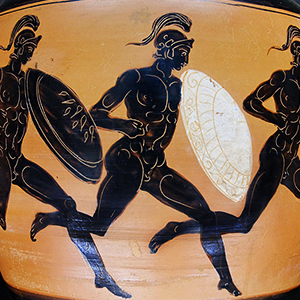
Spirit Guides, via channeled testimony, often speak of this “sorrowful planet” as a training world, one that will prepare us for what comes next. The grief and suffering experienced here might be compared to athletic training with 90 pounds of hoplite armor weighing us down.
It won’t always be this way. In one of Spirit-Guide Abu’s lectures, he states that “You on the Earth have no idea what it is to really live, to exult, to enjoy all that life can be. No, you haven't even begun to live.” Imagine what it would be like to finally remove the 90 pounds of armor, the sense of lightness, the carefree and untrammeled spirit, just to rejoice in the freedom of living as we like and going where we please.
We speak of “opening a channel”; we speak of learning to “be with what is.” So often in this world, the opening of a channel and the being with what is, at best, becomes a study of grace under duress. But this discomfiture is merely the training-weights attached to our legs. This is not the way it will be for unending times.
We are not to open a channel and be with "what is" in order to forever live with pain. No, these training-weights are temporary measures, meant to help us access Universal Intelligence, the mind of God, even under conditions of extremity and privation.
And when we do, especially, in better days to come, we will find that the primary purpose of opening a channel, of being with what is, issues as an unfettered perception of life, a pure delight to be alive, of simply enjoying one’s own existence, which, presently, as it often seems, is a little difficult.
Elizabeth Barrett Browning helps us here:
what is it to live but to feel the life in you, all the fibres of being, passionately and joyfully

|
Elizabeth's love letter to Robert, March 20, 1845: “You seem to have drunken of the cup of life full, with the sun shining on it. I have lived only inwardly; or with sorrow, for a strong emotion. Before this seclusion of my illness, I was secluded still … I grew up in the country – had no social opportunities, had my heart in books and poetry…
my life, drooping toward the ground like an untrained honeysuckle

"My sympathies drooped toward the ground like an untrained honeysuckle… It was a lonely life... Books and dreams are what I lived in… And so time passes and passed – and afterwards, when my illness came, I seemed to stand at the edge of the world with all done … I turned to thinking with some bitterness that I had stood blind in the temple [of life] I was about to leave – that I had seen no Human nature, that my brothers and sisters of the earth were [mere] names to me, that I had beheld no great mountain or river, nothing in fact…
what is it to live
"I am, in a manner, as a blind poet… how willingly I would as a poet exchange some of this lumbering, ponderous, helpless knowledge of books, for some experience of life and man… What is to live? Not to eat and drink and breathe, -- but to feel the life in you, down all the fibres of being, passionately and joyfully."
|
Editor's note: see further discussion on the "Zen" page. Also, see notes on the "Lao Tzu" page on how "The Way" is a form of "surrender and acceptance."
|
|












